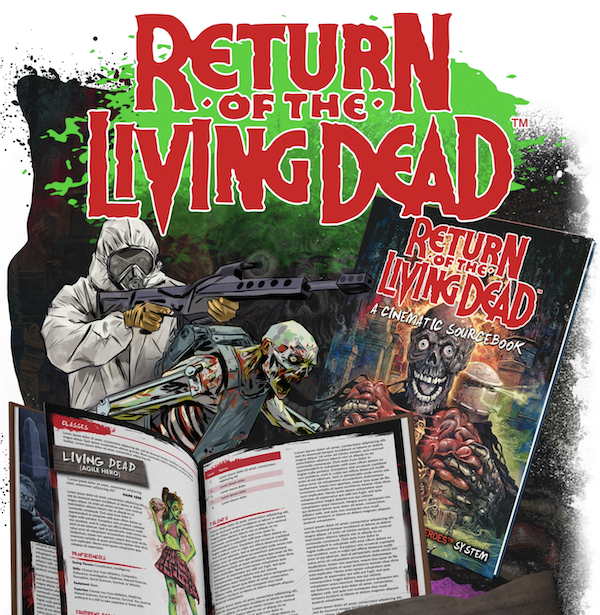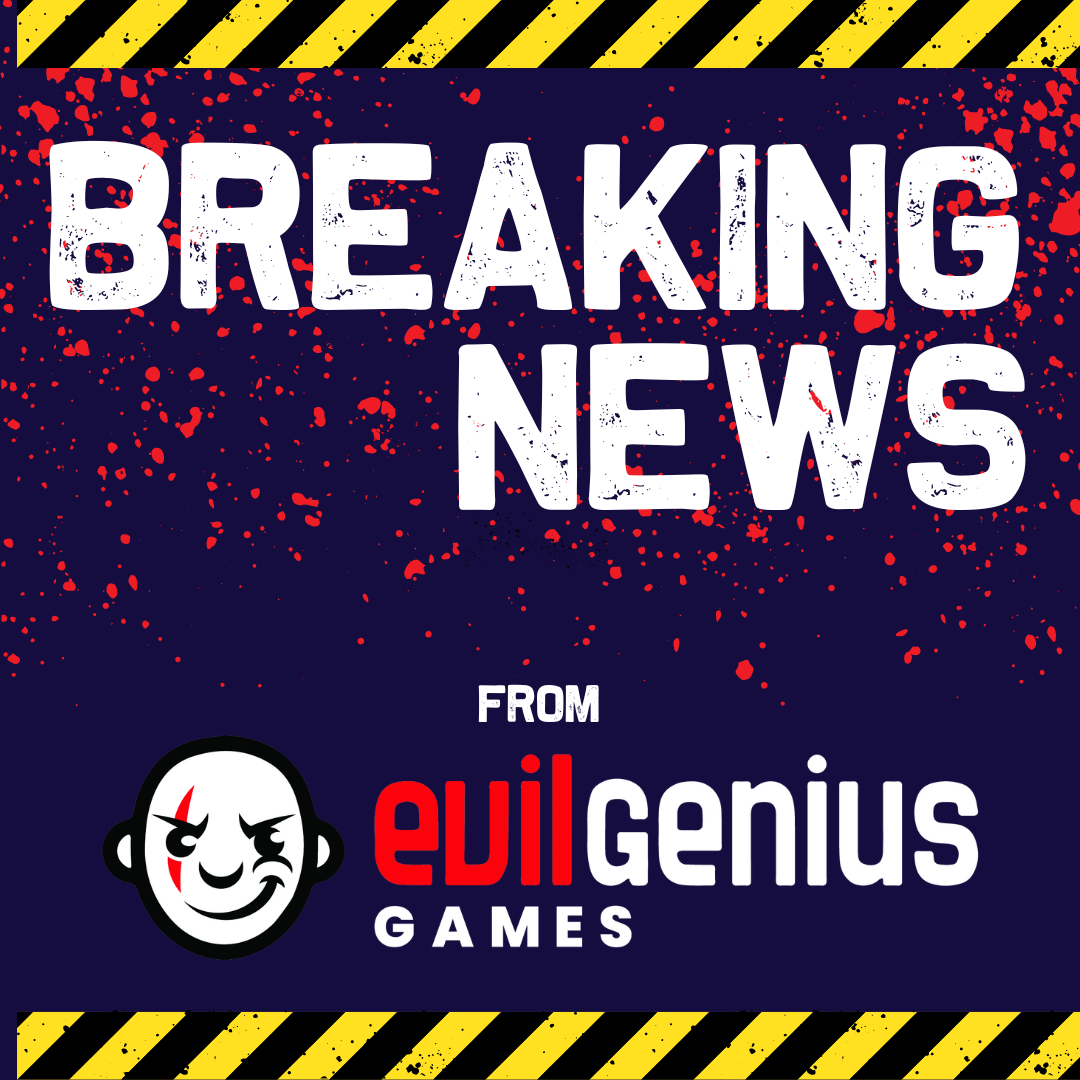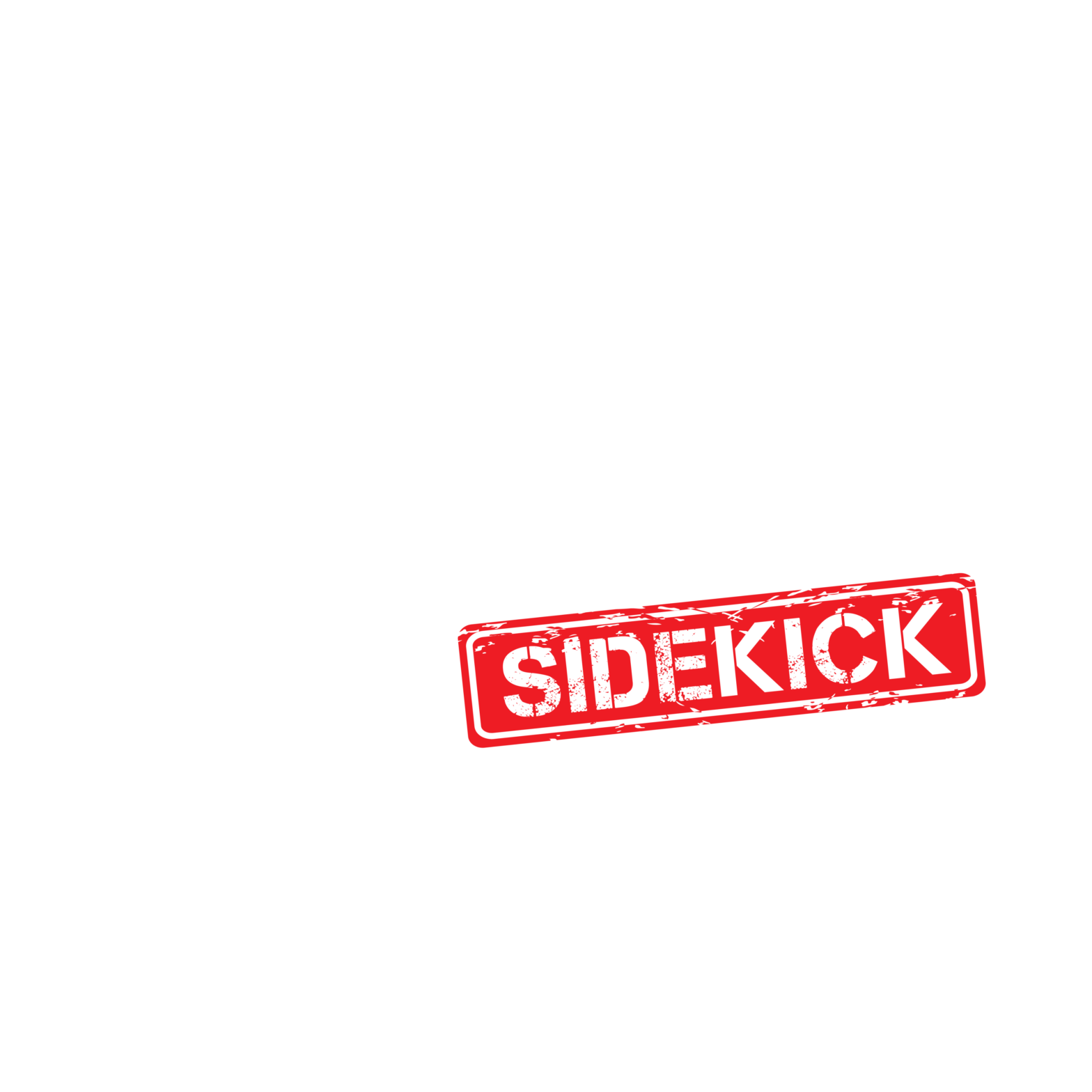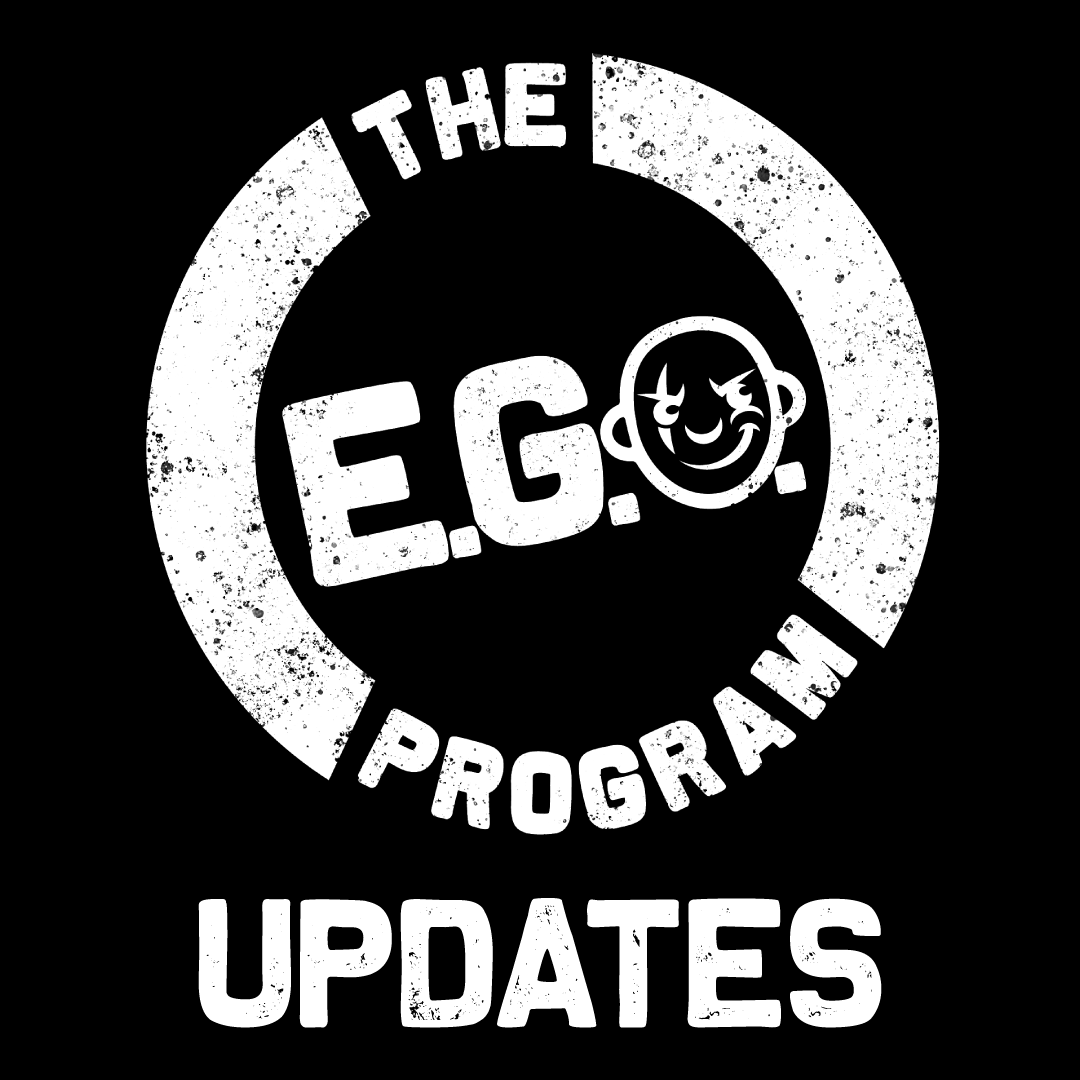Welcome back to the E.G.O. Writer’s Spotlight, an occasional series where we highlight writers of our E.G.O. Everyday Heroes adventures. As a former writing teacher and coach, world builder, editor, and writer myself, I always enjoy listening to writers talk about their craft. Hopefully, you do too. As the creators of the adventures that entertain and sustain our TTRPG community, these Everyday Heroes of the written word have fascinating stories to tell and interesting insights to share.
Our second Writer’s Spotlight features Rick Heinz, whose credits at Evil Genius Games extend across several popular Everyday Heroes publications (The Crow, Foresight’s Folly, Universal Soldier). Rick is also the writer of this season’s penultimate Assignment 8: Dubious Animation. In addition to being an adventure writer and novelist, Rick is the Founder and Writing Director of the indie game design studio, The Storyteller’s Forge. Let’s hear what he has to say…
Welcome to the E.G.O. Writer’s Spotlight, Rick. Give us a sense of your background and personality as a writer. How would you characterize your writing voice and style, or the kinds of adventures that you excel at?
As a writer, I’m originally (and, by the graces of slaying a few digital demons, still) a novelist. Long-form fiction is where I excel. My primary novel series, The Seventh Age, is a sarcastic urban fantasy about what happens when the veil of occult magic gets blasted wide open and everyone can claim a supernatural power for themselves…including the calamity that ensues when people wield powers that they weren’t meant to have. This series exemplifies the overall tone and voice in most of my writing: moral grays with a healthy splash of skepticism and sarcasm. I lean heavily into complex villains whose motives you can root for or factions that—when viewed from their perspective—just might be the good guys.
After releasing two novels, I started writing for Geek & Sundry. My initial press beat was covering indie TTRPG’s and systems other than D&D. I went on to write the GM Tips series for several years (those articles now reside under the Nerdist banner). As a storyteller, I had long been playing everything from Wraith: The Oblivion, White Wolf, Rifts, Savage Worlds…to just about everything but 3.0. So, when you mesh my gaming background with my novel style, you end up with socially compelling adventure narratives with multiple choice endings that make the players question which side they should really be on.
So, how did you get started as a TTRPG adventure writer? Are there projects or assignments that have been significant in your development as a writer so far, and which are you most proud of?
Let me set a visual stage really quick: imagine a group of international metal musicians milling about in my kitchen, drinking mead and discussing the music industry after a concert. Somewhere in the conversation I pipe up and say something like:
“Ladies, gents: if we drew a venn diagram of those who enjoy metal and those who enjoy slaying dragons, it would be a single circle. You have the Budapest Orchestra performing your music and I’m a writer and storyteller. Let me take this concept and build a whole world around it.”
Everyone gets real quiet and…one year later Pat Edwards, Courteney Penney, and I finished creating a behemoth campaign called The Red Opera: Last Days of the Warlock. It was metal, it was awesome, and it was well over 200,000 words.
The coolest thing about designing your own campaign and narrative from scratch is the ability to break the established templates of adventure play for more dynamic storytelling. I have done other freelance writing for many studios over the years, but The Red Opera is where my own style truly emerged. From there, I went on to do several other major projects before founding Storytellers Forge Studios and releasing The Black Ballad earlier this year.
The other project that is near and dear to my heart (and probably the reason that you’re reading this interview) is The Crow. When I saw Evil Genius Games had The Crow I.P., I promptly submitted my photo of a tiny, 15-year-old me dressed as the Crow next to James O’Barr. Out of that, not only did I get to work on The Crow Cinematic Adventure, but also Foresight’s Folly. And when Evil Genius asked me to write for Universal Soldier, I knew that I had come full circle in my writing—to dead things and conspiracies.
Speaking of dead things and conspiracies, tell us about your E.G.O. assignment. What did you enjoy about this assignment, and what were the challenges? And which aspects of this adventure do you hope GMs and players will particularly notice and enjoy?
Ah…E.G.O.! I’m joining the E.G.O. metastory just as the adventure path starts heating up and secrets begin to be revealed. My particular adventure checks all the boxes. Urban fantasy? Check. Conspiracy? Check. Dubious animation (or reanimation)? Also, check. My goal is to start raising the stakes for the characters, both morally and in scope, and help lead the overall adventure into its final, climatic sessions. By the time anyone plays my adventure (Dubious Animation), the characters will have some experience under their belt and be firmly cemented as the heroes or chaos gremlins (or both) that they are. So, now, I get to play with the implications of what happens in this world if the characters fail or decide to do something unexpected, like become a turncoat.
Nonetheless, it’s a challenge to write something that slots in at the 75% metric. One of the biggest challenges in writing organized play adventures is that you need to hit benchmarks for certain events that must happen for the season’s overall plot—but it’s a roleplaying game! Player agency and character progression still need to hit home. But how do you design something to have a particular impact when you don’t know the group, storytellers, or characters at the table? These questions are always the first things that I need to answer when writing any adventure, and it’s the biggest difference from novel writing. My goal, with this assignment, is to allow player agency and creativity, and to let secret deals to unfold—while still helping GMs hand off the group to whomever is running the next adventure in the series.
That is a challenge! So, describe your current process as an adventure writer. Once you receive an assignment, how do you proceed from the initial setup to the final draft?
Research and design first! Everything begins with looking at the overall narrative arc already in place, and then figuring out how I can stitch my own narrative beats together. It’s like writing an episode for a show: the story needs to be self-contained and have internal resolution, but it also needs to resolve the prior adventure and set up the next one. With this in mind, I always design the theme and mood that I want to hit first, and then write the ending. Next, I’ll put together an initial outline and get everything designed into the technical format unique to adventure writing. Then I start from scratch from the top.
By the time I get to the ending that I first composed, it will need to change, but for the better. This is why, personally, I am very big on starting early and getting a draft done as soon as possible, because THEN I get to do something badass that I love: focus entirely on narrative flow and GM tips without having to worry about proper formatting or hunting down mechanics. I will also build soundtracks for my NPC’s and entire playlists for the adventure and then rewrite the draft a few times over with music.
So, what other projects are you currently working on (or looking to work on) next?
I’m back to Novel Land! The Seventh Age: Decay currently has 80,000 words in its draft, but I have about another 80,000 to go. So, I have set myself a weekly word-count goal to get a first draft done this summer. But now that The Black Ballad is finished and delivered to our backers, I also get to play in a few other sandboxes. I have some adventure design work (for a project that hasn’t been announced yet) on my plate that I want to start, and there are three manuscripts entering production stages that I need to carry through to publication. And, in the middle of all this (and yes, I’m putting this in here!), I will be trying to convince the Evil Genius team to let me take ALL The Crow adventures and stitch them together to make a full hardcover campaign book. Buuuuut…that’s my perpetual pitch to these guys and anyway, they are used to it by now.
And as someone with broad experience in the industry, would you share any tips or insights for aspiring professional TTRPG adventure writers?
Tons, actually. I’ve been a freelancer, novelist, in-house designer, writing director, narrative designer, and now I am part of a studio. During this time, I’ve been on both ends of: the one submitting work, and the one hiring and writing the contracts. So, here are three top tips from me and other studio heads:
-
- Know WHEN to submit. Writing takes place sometimes YEARS before a project is announced. It’s the first step before any art or crowdfunding ever takes place. So, if you want to work with a company, submit early and stay in conversation. Be active in the community and keep an eye out for submission windows. You’ll have to be proactive, because Writing Directors are usually buried in transitioning drafts through editorial into layout. Getting a project assignment takes a long time and it never, ever, happens fast. Becoming a professional writer is a long-term game, and when you aren’t under contract you should be writing and working to publish your own content.
-
- Finish at least 3 days before the deadline and—please—follow the format requirements! Life does not play kind, but as a writer you need to manage your time because missing a deadline or not following the format and style requirements is the fastest way to never be invited back. The internal workflow required to turn a 200,000+ 400-page manuscript into a published book is very complicated and very expensive. When writers miss a deadline or hand in work that doesn’t follow the requirements, every other person (producer, editor, artist, layout designer, print houses) all need to have their timelines and contracts adjusted. Entire TTRPG companies have gone under because of delays in crowdfunding fulfillment, and the snowball effect starts with writers.
With this in mind, if you are offered a project and the deadline seems tight, ask for more time right away! Initial deadlines are much easier to move and adjust to than if something gets delayed two days before it is supposed to be handed off to the next stage. So, I heavily encourage contracted writers to finish their work weeks in advance and then polish from there. Editors and Writing Directors will help you land your draft where it needs to be, but they can’t do anything without a draft and without having time to help you before your deadline is up.
-
- Lastly, and specific to TTRPG writing: NPC’s are not Player Characters. NPCs are quick-glance tools for GM’s to use at the table. Overly complicated NPC’s become unwieldy very fast for the GM. The most technical part of writing adventures is making NPC’s have motives, roleplay hints, quick dialogue options, and reaction effects to what the PC’s do. The statblocks should have fun dynamic abilities that make an impact immediately in the encounter. When TTRPG writers fall into the trap of designing NPC’s as level 7 PC’s, then the focus becomes more on what the class itself does, and what the NPC is really meant to do within an encounter. Break that mold. Think about what a GM at the table really needs to impact a scene so the players have a great time and design from there first.
That’s all really helpful advice, so thank you! Do you have a website or a platform where people can access your other work?
Absolutely! You can find everything I do at www.storytellersforge.com and www.Rickheinzwrites.com! I’m also pretty active on Tiktok @crankybolt or @Stforgestudios. Our latest campaign and setting, The Black Ballad, is the perfect campaign to run after you TPK your party. Check it out! It was two years in the making and a whole host of people lent their minds and artistic talents to the project!
It sounds awesome. Thanks for being part of the E.G.O. Writer’s Spotlight. Best of luck on these other exciting endeavors, and we’ll look forward to E.G.O. Assignment 8: Dubious Animation!






Be the first to comment
Sorry but it seems you are not logged in.
To post the comment first you need to Sign In